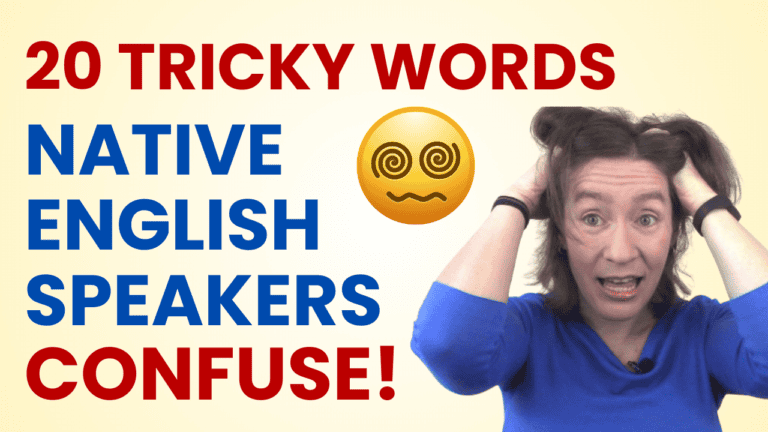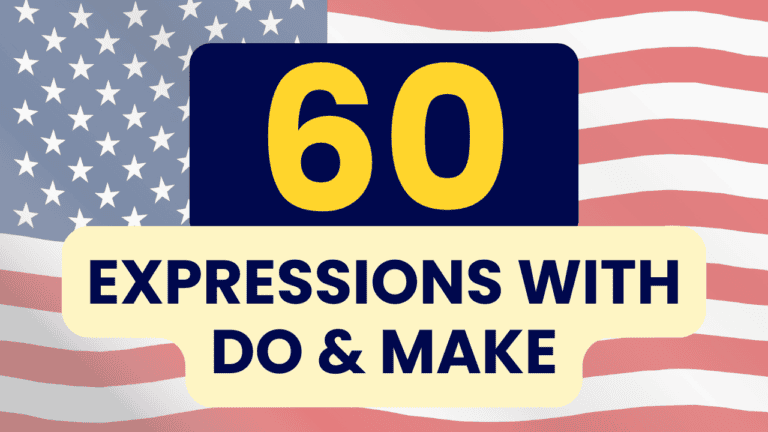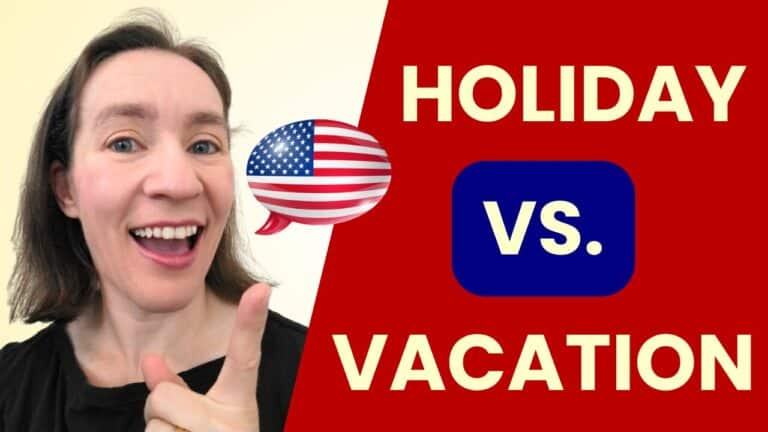
Hi, students, it’s Shayna from espressoenglish.net. I’m happy to be with you today and if you are watching live, then please comment, saying hello, or like this video so that I know you are in class with me.
In today’s lesson, I want to teach you how to use the words “although“, “even though” and “though” because a lot of English learners have trouble with these words or they’re confused and so maybe they avoid using them. Today, it will all become clear.
Use these words to show contrast
The words “although”, “even though” and “though” are all used to show contrast when two things are different or opposite. I like to compare it to the word “but.” We use the word “but” to show contrast.
For example, “I like baseball but my husband prefers soccer.” We’ve got a difference between me and my husband. Let’s take a look at these examples.
Let’s imagine I just bought a camera and the camera was expensive. I could express that in a few different ways. I could say, “It was expensive but I bought it.” That’s giving the idea of a contrast that it’s an expensive camera so that would make me not want to buy it but I decided to buy it. There’s a bit of a contrast there.
Now, we can express the same thing using “although” or “even though”. In this context, you can use either one. They’re the same. I could say, “Although it was expensive, I bought it.”
Or I could say, “Even though it was expensive, I bought it.”
Now, notice that when we use “although” or “even though”, we don’t use “but” anymore. You should never use “although” or “even though” and “but” in the same sentence because it doesn’t make sense, all right? “Although” or “even though” takes the place of the word “but” in showing a contrast between the two parts of the sentence.
I can also take this sentence and actually change it around to put “although” or “even though” in the middle. I could say, “I bought it although it was expensive,” or “I bought it even though it was expensive.” I still have this idea of a contrast between the two parts of the sentence, an expensive camera and me – I’m someone who likes cheap products and normally, I don’t like expensive products. The camera was expensive. I bought the camera even though it was expensive. It’s showing contrast.
Now, what about the word “though“? Well, there are a couple of different ways to use “though” but I want to teach you the most common. That is using “though” at the end of a sentence to make a contrast with the previous sentence.
In our example of the expensive camera, I would say, “It was expensive. I bought it, though.” “Though” in this case contrasts this sentence, “I bought it,” with the previous one, “It was expensive.”
Pronunciation – silent GH
Remember that in these words, I just want to make a quick note about pronunciation. The “GH” is silent so we say “though.” We don’t pronounce the “GH” at all. When you’re speaking, remember that. I know it’s very strange to have a “GH” that we don’t pronounce but that’s how we say it, “Although, even though and though.”
Don’t use these words with similar sentences/phrases
Now, when you’re using these words, remember that there has to be a contrast. You can’t use “although”, “even though” and “though” when the two parts of the sentence are similar.
For example, let’s imagine I’m going to a dinner and the dinner has a lot of delicious food and I eat a lot. I can’t say, “Although the food was delicious, I ate a lot.” That doesn’t make sense because delicious food and eating a lot, those go together. They’re similar. We would expect a person to eat a lot of food if food is delicious. There’s no contrast and we can’t use “although”.
In that case, to talk about two similar things, we can use “and”. We could use “so” or we could use “because”. I could say, “The food was delicious and I ate a lot,” or, “I ate a lot of food because it was delicious,” or, “The food was delicious, so I ate a lot.”
Those words express the relationship between similar things or between a logical cause and effect but when we have a contrast, that’s when we use “although”, “even though” and “though”.
Let’s imagine I went to the dinner. The food was delicious but I wasn’t very hungry so I didn’t eat very much. Now, we have a contrast between delicious food but not eating a lot of the food. I could say, “Although the food was delicious, I didn’t eat very much because I wasn’t hungry,” or I could say, “I didn’t eat very much even though the food was delicious,” because now we have a contrast, all right?
I hope these examples have made it clearer how to use the words “although”, “even though” and “though”. This will help your English sound a little more sophisticated, a little more like a native speaker instead of using “but” all the time. I will say that it’s pretty common for us to use “but” in spoken English, just speaking informally and it’s also really common to use “though” at the end of a sentence.
We can also use it in response to somebody else saying something that we want to make a counterpoint where we want to express an opinion that is different or in contrast. If I am camera shopping with my husband and he’s worried about the price, he could say, “That camera is really expensive,” and then I could respond by saying, “I really want it, though.” I’m contrasting his concern about the cost with my desire to buy the camera and I use the word “though” at the end to show that contrast, all right?
I hope you’ve enjoyed today’s lesson and if you’d like to take your English even further to the next level, then I would suggest you take a course with me. I’ve got lots of great courses that have exercises. We can put your English into practice. If you’d like to learn more, just click on the link in this video and you can read all about my available courses.
One more thing, I’d love to see you put this lesson into practice so please leave a comment with some situation where there’s a contrast between two different or opposite things and use “although”, “even though” or “though” and I will take a look at your comments today and see if you’re using the words correctly. Thank you for joining me in today’s live lesson and I will see you in the next one. Bye for now.









